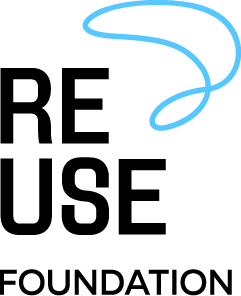Featured
SUPPORTING THE NOVEL REUSE SOLUTION IN INDIA, BEAT THE SACHET! |
|
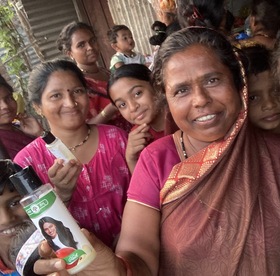
|
REUSE Foundation is excited to support Beat The Sachet, a novel reuse project working in India. In many low-income countries products are often sold in single doses packaged in plastic. These sachets cannot be recycled, they escape to waterways and are a primary cause of ocean microplastic. Approaching 1 trillion are used each year and use is strongly rising. It's been a scandal for years and major users like Unilever have been vilified but continue to increase plastic sachet sales. Little is being done to address this major environmental problem.
Beat The Sachet worked with low-income communities, mostly waste-pickers, to devise a reuse solution that would work for them. It tested the solution in a year-long pilot that went well. India Plastic Pact highlighted the project for its potential to scale in low-income communities and Beat The Sachet is ready to go to the next level. It approached companies such as Unilever and L'Oreal for funding but was declined. REUSE Foundation is excited to be able to support Beat The Sachet on its next step. Preparations are underway and Beat The Sachet 2.0 will launch early 2025. For more details or to help fund this project, click here[Image Credit: © LESS& Ltd.] |
Highlights
UK Retailer Set To Use Polytag Plastic Tracing System At Scale |
|
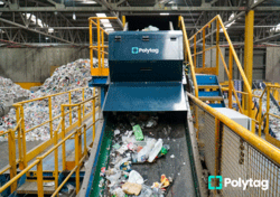
|
UK retailer Marks & Spencer and recycling technology company Polytag are collaborating on systems that trace what happens to its plastic packaging once used by consumers. An invisible tag can be read by electronic scanners at recycling centres. Tagged products will start to hit the M&S shelves by the end of the summer. Other retailers investing in Polytag include The Co-op, Aldi and Ocado, but the M&S scheme will be the first full-scale use. Polytag aims to have the system at 12 sites or more, accounting for half of all single-use plastic household waste recycled in the UK, within a year, with a longer-term plan for 48 UK sites, or 95 percent household waste recycling. Moves like these are possible ways of addressing the incoming extended producer responsibility regime. [Image Credit: © Polytag]
|
PureCycle Pays $13 Million To Settle Shareholder Complaint |
|
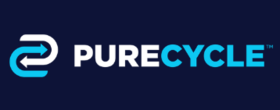
|
Polypropylene recycling company PureCycle Technologies Inc. in Ohio has settled a lawsuit for $12 million. The suit alleged that PureCycle misled shareholders and the proposed settlement, in the US District Court in Orlando, Fla., will cover any person or entity that purchased or acquired stock between November 2020 and November 2021. Plaintiffs said that company statements about its polypropylene recycling process and its management's business experience "artificially inflated the price of PureCycle securities, and that the securities' prices dropped in response to certain subsequent disclosures". PureCycle’s solvent-based technology, developed by Procter & Gamble and licensed to the recycler, cleans used polypropylene and returns it to virgin quality. [Image Credit: © PureCycle Technologies, Inc.]
|
UK’s KinKind Plastic-Free Beauty Brand Hopes To Raise $500K |
|
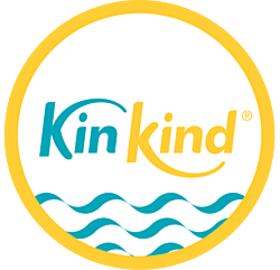
|
KinKind, a eco-friendly hair and beauty brand in the UK, is seeking to raise £500,000 help it deliver its mission to make beauty plastic free. It makes and sells plastic- and water-free hair and beauty care products. Founder Victoria Coe has over 20 years of experience in FMCG marketing; channel growth is led by Paul Brown, who used to work for Reckitt and Douwe Egberts as sales director. Plans for the funds include new product development, as well as team expansion, channel growth into retail, new product categories and new packaging design. [Image Credit: © KinKind Ltd] |
SC Johnson Outlines The Refill And Reuse Approach To Tackling Plastic Waste |
|
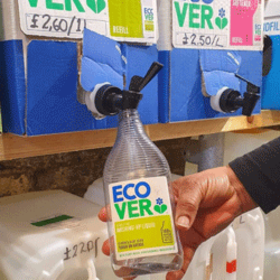
|
According to an SC Johnson article, refilling and reusing containers is not just a nostalgic trend from the past but is gaining momentum among a new generation as a way to combat packaging waste. Citing the World Economic Forum, it said half of global plastic production is single-use and that reusing just 10 percent would reduce by half the amount of plastic waste reaching oceans. It also mentioned an Ellen MacArthur Foundation study that found widespread use of returning and reusing plastic packaging could cut greenhouse gas emissions by over two-thirds. A shift towards refilling and reuse options is gaining traction due to its potential to significantly cut down on plastic waste and greenhouse gas emissions. Governments are taking notice and businesses are taking action, with initiatives like dedicating shelf space to refill options or introducing reusable programs to encourage adoption. SC Johnson is among companies exploring different approaches such as Refill at Home, Refill on the Go, Return to Store, and Return from Home to unlock the potential of refill and reuse strategies. Despite consumer interest, the transition to refill and reuse has faced challenges such as convenience culture, the gap between consumer intent and action, cost factors and complexities in the supply chain. Overcoming these hurdles requires collaboration among consumers, businesses as well as governments to drive systemic changes towards a culture that prioritizes long-term benefits over the short-term convenience of plastic.[Image Credit: © S.C. Johnson & Son Inc.]
|
Polythene UK Starts Mobile Plastic Waste Collection Program In England |
|
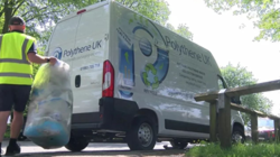
|
Polythene UK launched a mobile plastic waste collection program in England. The packaging company uses a van equipped with an onboard compactor to collect and compress the polythene waste. Minster Lovell-based Spar joined the plastic waste collection scheme.[Image Credit: © Polythene UK Ltd] |
AVON Works With Amcor To Launch Refill Pouch In China |
|
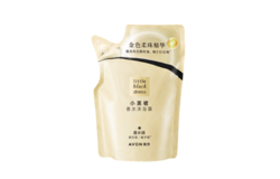
|
AVON and Amcor partnered to launch the AmPrima™ Plus refill pouch for AVON’s Little Black Dress shower gels in China. The new packaging reduces the carbon footprint by 83% and decreases water and renewable energy consumption by 88% and 79%, respectively, when recycled. The AmPrima refill pouch matches barrier properties, stiffness, and graphics performance of non-recyclable alternatives. The company has plans to introduce similar solutions for other products, including its Shimmer Shower Gel later this year. AVON aims to use 100% reusable, recyclable, or compostable packaging and use 50% recycled content in all its plastic packaging by 2030. [Image Credit: © Amcor plc]
|
EarthEcho International And SC Johnson Introduce First Group Of Marine Plastics Ambassadors |
|
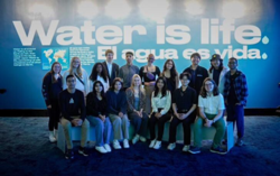
|
EarthEcho International and SC Johnson launched the Marine Plastics Ambassadors, a group of 22 young campaigners from the United States and Canada tasked with developing and implementing anti-plastics pollution campaigns and projects in their communities. Youth ambassadors, aged 16-22, will develop and implement local projects to reduce plastic waste. The program kicked off in Chicago, where participants explored The Blue Paradox exhibit, a collaborative effort by SC Johnson and Conservation International. This initiative addresses the statistic that 22 million tons of plastic enter the Great Lakes annually, contributing to a global crisis with severe impacts on marine ecosystems.[Image Credit: © PRNewswire / EarthEcho International]
|
Supermarkets Criticized for Inconsistent Recycling Labels Post-REDcycle Collapse |
|
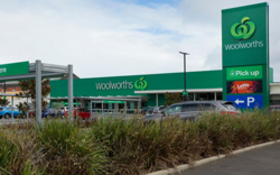
|
In Australia, Coles and Woolworths are facing backlash for continuing to use outdated recycling instructions on their soft plastic packaging, despite the REDcycle program's collapse in 2022. This program allowed customers to return soft plastics to these stores for recycling. The outdated labels have caused significant consumer confusion, with mixed messages on whether to bin or recycle the plastics. Both supermarkets announced plans to update their packaging with new "Check Locally" or "Bin" logos, but progress has been slow. Critics argue that this delay erodes consumer trust and constitutes greenwashing. The Australian Packaging Covenant Organisation (APCO) introduced new recycling guidelines in July 2023, but manufacturers have until July 2025 to fully comply. Meanwhile, trials for a national curbside soft plastic recycling scheme are ongoing.[Image Credit: © Woolworths Group Limited]
|
Businesses Call For Legally Binding Global Plastics Treaty |
|
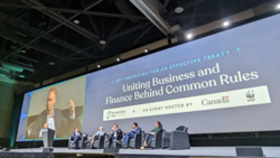
|
The Business Coalition for a Global Plastics Treaty supports a legally binding global treaty against plastic pollution. Unilever, together with the more than 200 member companies and organizations believe that voluntary recycling and other plastic waste reduction efforts are not enough to address the global problem. Businesses by nature prefer regulatory certainty, something that today’s uncoordinated policies by most governments cannot provide.[Image Credit: © Unilever]
|
Colgate Says It May Miss 2025 Plastics Targets |
|
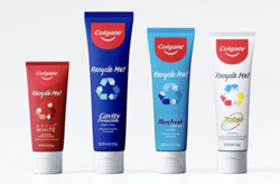
|
Colgate-Palmolive acknowledges potential delays in meeting its 2025 packaging circularity goal due to challenges in converting flexible bags and pouches. In its 2023 sustainability report, the company reveals progress of 89.5% towards the target, with difficulties noted in packaging for Hill's pet food and personal care items. Despite achieving milestones like reducing virgin plastic use by 21.4% and implementing 18% post-consumer recycled plastic content, Colgate faces obstacles in making all packaging recyclable, reusable, or compostable. Additionally, the transition to recyclable toothpaste tubes, covering 90% of North American SKUs, faced hurdles, including consumer lawsuits disputing recyclability claims. Colgate's journey reflects broader industry struggles in adopting environmentally friendly packaging solutions amidst evolving consumer demands and regulatory landscapes.[Image Credit: © Colgate-Palmolive Company]
|
Consumer Survey Shows Strong Support for Reuse and Refill Initiatives in UK |
|

|
A March 2024 survey by City to Sea and Obsurvant highlights growing concern among UK consumers about plastic pollution and their support for reuse and refill initiatives. The survey, with 2,037 respondents, found 83% of participants are worried about the plastic in their weekly groceries, and a similar percentage report feelings of anxiety and frustration about plastic waste. The results show a significant increase from 2021. Additionally, 82% of respondents believe brands should do more to reduce packaging and promote reusable options, while 76% think the government should prioritize tackling plastic pollution.[Image Credit: © City to Sea] |
Cleantech Group Advocates for Bioplastics and Advanced Recycling to Curb Emissions |
|

|
According to Cleantech Group, bioplastics and advanced recycling technologies hold promise for reducing the environmental impact of the plastics industry, which is on track to reach $1 trillion annually. Bioplastics, which are biodegradable and offer near cost parity with traditional resins, can reduce a product’s carbon footprint by nearly half. Although the production of bioplastics is expected to grow 3.5 times by 2028, it will still only make up 1.8% of total plastics production. The US leads in bioplastics production, with Thailand as a surprising second. Cleantech also promotes advanced recycling technologies which, unlike mechanical recycling, can process all plastic types, increasing recycling rates from 8% to potentially over 30% by 2040[Image Credit: © CTG:1 LLC]
|
Plastics Pact Network Helps 12 Countries Recycle 9% More Plastic Packaging |
|

|
The Plastics Pact Network, started by WRAP and the Ellen MacArthur Foundation in 2018, has helped 12 countries increase their plastic packaging recycling by 9%, or 463,000 tons. Details from the report, “Plastics Pacts – Scaling Impact”, the network eliminated 360,000 tons of “problematic and unnecessary” plastics and redesigned more than 850,000 tons of plastic packaging to make it reusable, recyclable, or compostable at scale. Also, the network has increased recycled content in packaging by 44%, avoiding the use of 2.2 million tons of virgin plastic in 2022.[Image Credit: © WRAP]
|
Sephora Enhances Sustainability with Expanded Take-Back and Refill Programs |
|
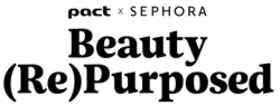
|
Sephora is expanding its Beauty (Re)Purposed take-back program and its refillable product offerings. Partnering with Pact Collective since May 2023, the Beauty (Re)Purposed program provides customers with in-store stations to recycle beauty product packaging, successfully collecting over 10,860 pounds of waste. Sephora’s refillable products, part of a program launched in April 2019, have also gained traction, particularly with brands like Youth to the People and Skinfix. The company addresses consumer education challenges through in-store signage and digital engagement. Sephora is set to expand its refillables selection to over 100 products by summer, reinforcing its sustainable practices and responding to growing consumer demand for environmentally friendly beauty solutions.[Image Credit: © Sephora USA, Inc]
|
Carbios Unveils World’s First PET Biorecycling Plant in France |
|
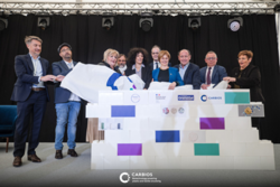
|
Carbios, a biotech company specializing in plastic and textile recycling, has commenced construction on the world’s first PET biorecycling plant in Longlaville, France. Scheduled to be fully operational by 2026, this facility will process 50kt/year of PET waste using Carbios' enzymatic depolymerization technology. This innovative method enables the recycling of previously non-recyclable materials, including multilayered and colored packaging, as well as polyester textiles. Carbios will receive grants of up to €54 million from the French government and Grand-Est region. The plant is located near Belgium, Germany, and Luxembourg, ensuring ample waste supply and creating 150 jobs in the region. [Image Credit: © CARBIOS]
|
Mr Muscle And SC Johnson Honor Football Fans Who Supported Recycling Campaign With Walk Of Fame |
|

|
Mr Muscle and SC Johnson revealed a Walk of Fame on Rockfield Road to highlight fans of the Liverpool Football Club who supported plastic recycling campaigns at the Anfield stadium in Liverpool, England. Results of new research by Mr Muscle brand revealed that 80% of football fans believe sustainability is important, with 55% supporting sustainability initiatives. Mr Muscle released a Window & Glass cleaning spray with packaging made of the plastic recycled from the stadium.[Image Credit: © S.C. Johnson & Son Inc.]
|
Study Finds 56 Multinational Consumer Goods Companies Responsible For Half Of World’s Plastic Pollution |
|
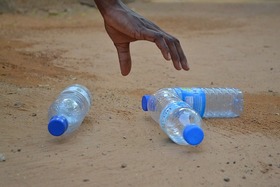
|
Only 56 multinational consumer goods companies accounted for about half of plastic pollution worldwide, according to a peer-reviewed study and analysis of five years of Break Free From Plastic Brand Audit data. Researchers gathered and analyzed 1,870,000 items of plastic waste across 84 countries, with Indonesia, Tanzania, the US, Malaysia, and Democratic Republic of Congo having the highest numbers of audits. Researchers noted that almost half of plastic waste reviewed was unbranded and untraceable, with Coca-Cola Company (11%), PepsiCo (5%), Nestlé (3%), Danone (3%), Altria and Philip Morris International (2%) as top contributors of branded waste.[Image Credit: © isidingo from Pixabay]
|
Unilever Revises Plastic Packaging Goals And Acknowledges It Won’t Hit Initial Targets |
|
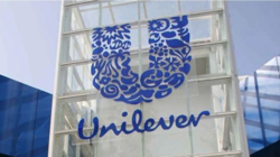
|
Unilever recently modified its plastic packaging sustainability targets, pushing deadlines beyond 2025, likely setting a precedent for potential shifts across the industry. With new objectives aiming to reduce virgin plastic footprint by 30% and 40% by 2026 and 2028 respectively, compared to an original target of a 50% reduction from a 2019 baseline by 2025. As of 2023 (latest data) it reported an 18% reduction. Unilever's adjustments reflect evolving regulatory demands and practical feasibility assessments. While the company maintains some original targets, such as using 25% recycled plastic in packaging, its revised timeline underscores a balance between ambition and realism. The move aligns with broader trends as companies reassess goals set in the 2018-2020 period amidst growing regulatory pressures and enhanced industry knowledge regarding sustainable packaging practices.[Image Credit: © Unilever]
|
UK Postpones Launch Of Nationwide Deposit Return Scheme |
|
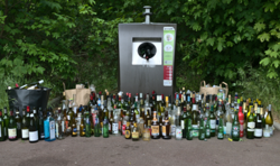
|
Instead of the planned 2025 launch, UK Government department Defra has delayed introducing the country’s Deposit Return Scheme until October 2027. Defra made the decision following extensive consultations and “collaborative efforts” with the Northern Ireland Executive, Welsh Government and Scottish Government. The proposed national DRS aims to improve recycling rates, reduce littering and move the country closer to a circular economy.[Image Credit: © Aleksandr Kadykov on Unsplash]
|
World Needs International Treaty To Deal With Plastic Waste Pollution |
|
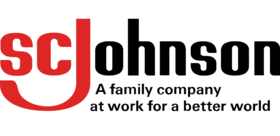
|
In a Newsweek op-ed, SC Johnson Chairman and CEO Fisk Johnson and M. Sanjayan, CEO of Conservation International, explained their support for a global plastics treaty to deal with the worldwide problem of plastic waste pollution. Plastic waste, and microplastics in particular, do not recognize national borders and therefore countries need to collaborate to solve this problem. Developed countries should provide financial and technical assistance to developing countries in setting up strong waste collection systems. Also, every country must do its part to set up national policies aimed at dealing with plastic waste pollution.[Image Credit: © S.C. Johnson & Son Inc.]
|
EU Parliament Adopts Rules To Reduce Plastic Packaging Waste |
|
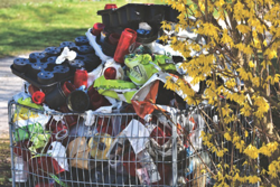
|
Aimed at improving the sustainability of packaging and reducing packaging waste across the European Union, the European Parliament approved new rules to reduce the amount of plastic packaging waste and set packaging reduction targets. By 2030, packaging should be cut by 5 percent; by 2035, 10 percent; and by 2040, 15 percent. Also, certain types of single-use plastic packaging will be banned from January 2030. These include packaging for unprocessed fresh produce, packaging for foods and beverages used in restaurants and cafés, and miniature packaging typically used in hotels and the like.[Image Credit: © Ralph from Pixabay]
|
University Of Saskatchewan Scientists Develop Bioplastic That Absorbs Phosphate From Water |
|

|
University of Saskatchewan chemistry professor Lee Wilson and his research team developed a bioplastic material that can absorb excess phosphate from water and function as a fertilizer when decomposing. According to a paper published in the “Royal Society of Chemistry Sustainability Journal”, the bioplastic material is a “biocomposite pellet that contains a marine polysaccharide, eggshells, and wheat straw”. [Image Credit: © Sören Funk on Unsplash]
|
Unilever Outlines Changes To Its Sustainability Strategy |
|
.png?width=280)
|
Unilever’s CEO, Hein Schumacher, talked about how the company has for years “put sustainability firmly at the heart of our business strategy” and how the focus must change to accelerate delivery of sustainability and with greater impact, “by making sustainability progress integral to business performance”. Its new strategy aims to make the company “more focused in allocating our resources towards our biggest sustainability priorities”; “more urgent in driving actions towards our long-term ambitions’; and “more systemic in our advocacy to address the enablers and blockers of progress outside of our direct control”. The four main areas of focus are climate, nature, plastics and livelihoods. Schumacher says that long-term commitments remain fundamental, but “we also need to ensure we deliver now”, and Unilever is “short-terming” its approach, "hard-wiring” the necessary steps “into the strategic cycles that most companies plan around”. He added that the company is reinforcing its focus on opportunities that “largely depend on global value chain transformations, technological innovations, and public policies to make them possible and affordable”. And it aims to use its voice more forcefully. An important part of this is leading the demand for a global plastics treaty that “sets binding rules, targets and standards on packaging redesign, reuse/refill models, extended producer responsibility (EPR), waste processing, and the elimination of avoidable plastics”. [Image Credit: © Unilever]
|
På(fyll)’s Circular Home Refill Service Removes Plastic Waste From Equation |
|
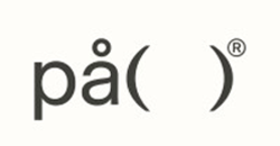
|
Norway’s På(fyll) aims to eliminate plastic waste by providing home delivery of household products in reusable packaging. Positioned as a modern version of the traditional milkman model, the company’s circular home refill service invites consumers to place orders for refilled containers delivered to their homes. Consumers can reorder by scanning the QR code on the container or going to the company’s website, pafyll.com. Used containers are collected, washed, refilled and used repeatedly. Orkla Home and Personal Care is supporting the new business.[Image Credit: © Påfyllsystemer AS]
|
